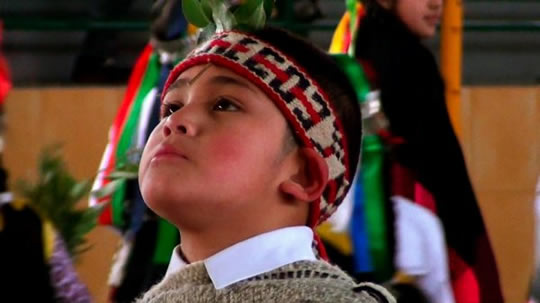




The Ethics Commission Against Torture has published its 2012 Report on the state of human irghts in Chile, drawing particular attention to the convictions and restrictions meted out upon many Mapuche communities.
Below is a Report from CECT:
On the chapter dedicated to the “Repression and violence against the Social Movement” the 2012 Report denounces that by early June 2012 Chile recorded a total of forty (40) Mapuche political activists convicted or charged by the justice system. Of these, nine are actually undergoing effective political imprisonment in jails. (By June 31, 2012 though, in Angol there are 12 Mapuche political prisoners (MPP’s), as a few additional detentions were made and 6 others have been detained since the early figures)
During this period one Mapuche political prisoner, who was in the jail of Temuco, committed suicide. To these facts should be added that on June 27 [2012], the Court of Appeals of Temuco put under custody two Mapuche people from a community, bringing the number of detainees under effective imprisonment to 11 (just after the publication of this report, made by Editorial Quimantú and launched at a ceremony held on 26 of June [2012], International Day in Support of Victims of Torture).
Pressure from human rights organizations both internationally and nationally, the hunger strikes of 33 Mapuche political prisoners and the amendment of the anti-terrorism law after the hunger strike in 2010, have led to a change in the forms of punishment imposed by the State on the Mapuche social activists. These, for the time under discussion, significantly reduced the number of Mapuche living in prison. Granting interim measures still restricts freedom but avoids detention and continues to increase acquittals, yet the State established massive repression, expressed in raids against communities demanding their rights. These raids are conducted with Special Forces militarized Police.
Long prison sentences for members of the Coordinadora Arauco Malleco (CAM) were issued by the Supreme Court on June 2011 on the basis of evidence provided by anonymous witnesses (allowed only under anti-terrorism law trials). This contained an eloquent message to the rest of the organizations and communities in struggle. On May 2012, 40 Mapuche social activists serving sentences or awaiting trial on charges related to the recovery of ancestral lands, were again accused with support of secret witnesses outside the criminal law. This type of illegal procedures were applied also to other sectors of the Chilean population struggling for their rights. Lawyer Lautaro Loncon, who commented on this report in the Aula Magna of the Universidad Alberto Hurtado on 27 June [2012], did not hesitate to characterize the Chilean state as racist and, in particular, referred to the judges and public prosecutors and police that in their professional practice they flaunt such behavior without any significant reaction from society or from other branches of government.
Next, we provide the details of the type of punishment in use by the State to those involved in activities related to their demands for their ancestral lands. These lands are currently in the hands of major forestry companies, namely Arauco and Forestal Minico.
• Men under effective prison: 11
• Convicted political prisoners who receive some imprisonment benefits: 6
• Women & men detained with interim relief (usually house arrest and limited range of movement: 24
• Total convicted and charged people: 40
• Suicides while in jail of Temuco: 1
Note: The report can be downloaded from the CECT at www.contralatortura.cl
Source: UNPO, August 1st, 2012